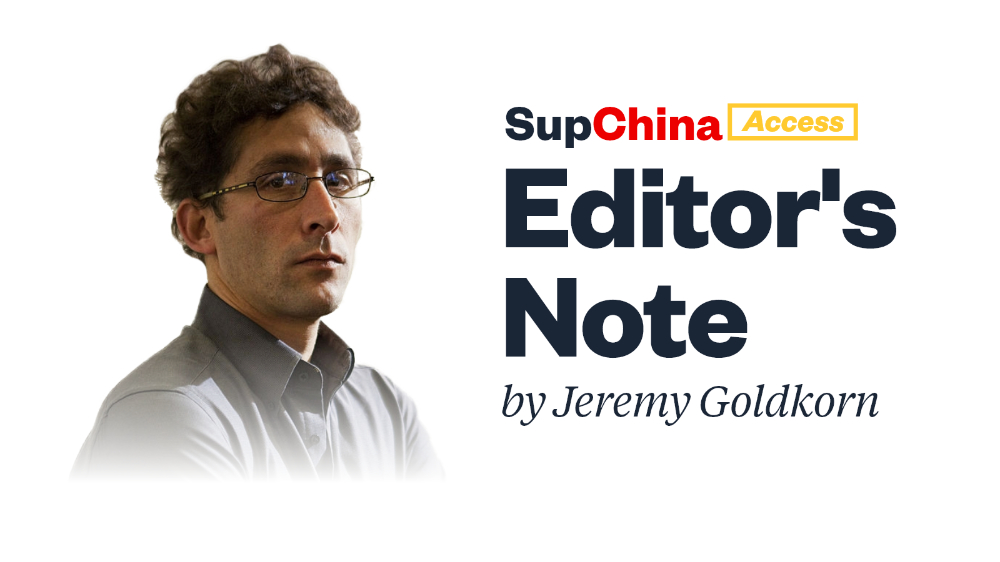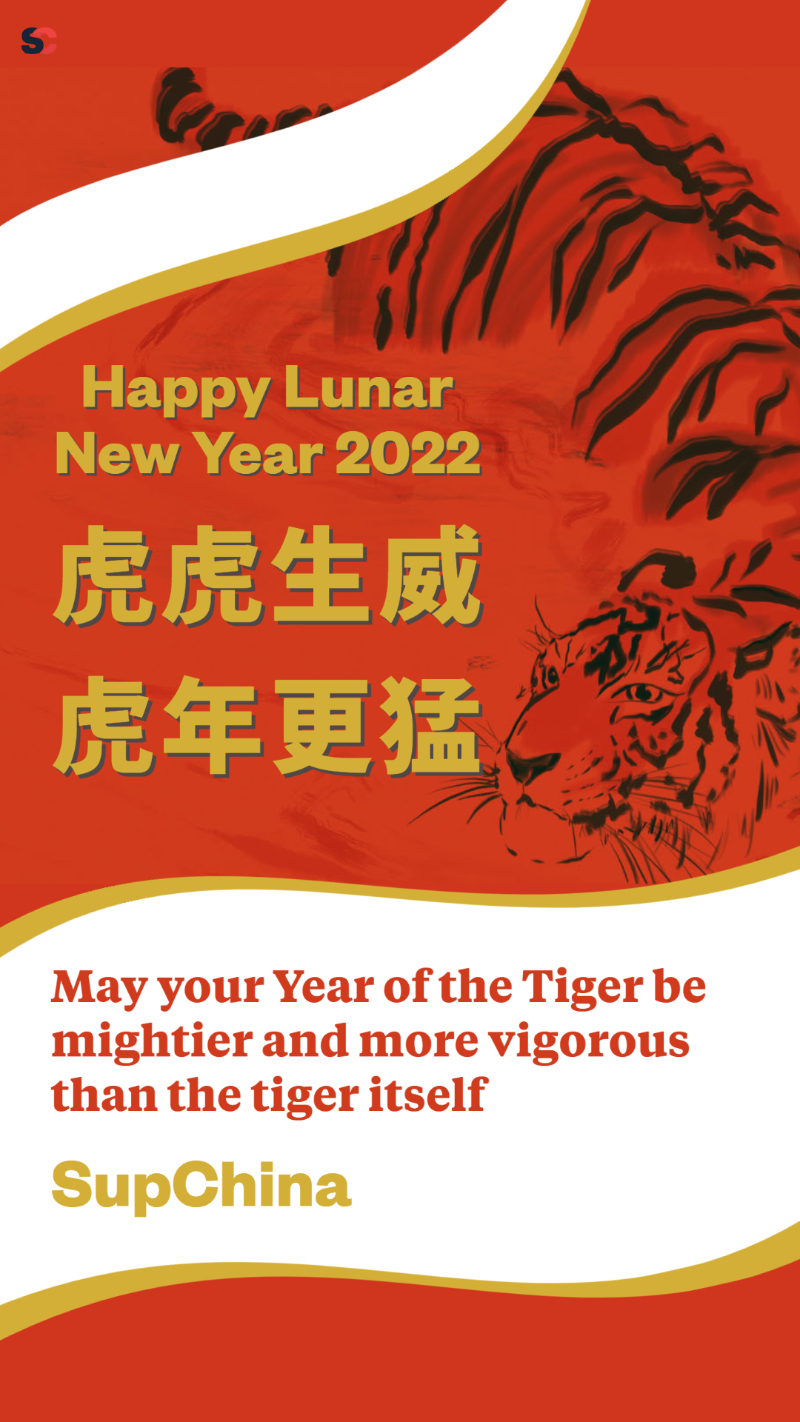Editor’s note for Friday, January 28, 2022
A note for Access newsletter readers from Jeremy Goldkorn. Today: China's ambassador to the U.S., Qin Gang, warned Washington over Taiwan and defended Beijing's policies in Xinjiang; Chinese regulators are seeking to allay international bankers’ fears, and separately, cracking down on deepfakes; companies are not going to boycott the Olympics.

Dear reader,
Next week, the Year of the Tiger begins, and we wish you all the best!

Here are some stories worth reading on the last Friday of the Year of the Ox:
China’s ambassador to the United States issued a warning in an interview yesterday with NPR. Qín Gāng 秦刚, who took up the post in July 2021, said that if “the Taiwanese authorities, emboldened by the United States, keep going down the road for independence, it most likely will involve China and the United States…in a military conflict.” He also asserted that some Uyghurs were terrorists.
“The destination for them is prisons,” he said, while asserting that others had inappropriate thoughts that they were being taught to change in “vocational schools.”
China has halted 60 IPOs amid accounting fraud cases: See our The China Project A.M. report this morning for details.
China seeks to allay international bankers’ fears: “The China Securities and Regulatory Commission (CSRC) met this week with executives at top western banks and asset managers to reassure them about the country’s economic prospects after regulatory crackdowns in 2021,” reports Reuters.
Deep fakes are illegal: “China’s cyberspace regulator issued draft rules on Friday for content providers that alter facial and voice data, the latest measure to crack down on ‘deepfake’ and mold a cyberspace that promotes Chinese socialist values,” reports Reuters.
Companies are not going to boycott the Olympics, reports the New York Times: “Pressure is mounting on companies to condemn the country’s human rights violations, but executives say the Games should not be politicized.”
From our weekly China Vibe newsletter’s “Best of the rest” roundup:
For years, the thin, gray-bearded man featured in ads for Chinese mattress brand De Rucci could be seen everywhere in China. Known by some Westerners as “the most famous face in China,” the Steve Jobs look-alike’s identity remains a mystery, drawing curiosity, theories — and a surprising denouement, the Wall Street Journal reports.
Click here to subscribe to the China Vibe newsletter, written by our society and culture editor, Jiayun Feng.
—Jeremy Goldkorn, Editor-in-Chief






